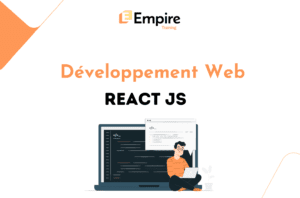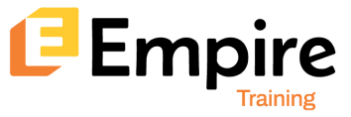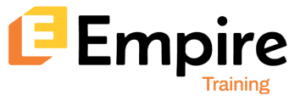Développement Web -
Devenir Développeur Web : convertir des conceptions graphiques en sites web fonctionnels et conviviaux.
- Level: Fundamental
- Durée : 3 Mois
- Tarif: 1200 DT
- Download the program

Flexible 100% online training
Start your new career at any time! Available part-time? No problem, study at your own pace.





Professional projects
You will develop your professional skills by working on concrete projects inspired by business reality. No problem, study at your own pace.





Personalized support
Benefit from weekly mentoring sessions with a business expert.





Earn certificates and diplomas
Earning certificates and degrees can enhance your career, broaden your horizons, and provide you with increased personal satisfaction.
- Preview
- Projects
- Accompaniement
Angular training objectives
Operational objective:
Savoir exploiter le framework Angular pour concevoir des applications web modernes et immersives. Know how to use the Angular framework to design modern and immersive web applications.
Educational objectives:
Concretely, at the end of this Angular training, you will have acquired the knowledge and skills necessary to:
- Know the fundamental principles and operation of Angular and its Angular CLI tool
- Know the TypeScript language (superset of JavaScript ES5 and ES6)
- Know how to develop and reuse the different components of an Angular application: graphical components, services, directives
- Know how to test your components in insulation
- Be able to deploy an Angular application in production
- Know what’s new in the latest versions of Angular
-
Component-based architecture : Angular encourages structuring applications using reusable components. Each component manages its own logic and user interface.
-
TypeScript : Angular is primarily based on TypeScript, a strongly typed programming language that improves code readability, maintainability, and error detection.
-
State management : It provides mechanisms to efficiently manage application state, which is essential for reactive applications.
-
Routing : Angular offers a built-in routing system for navigating between different views and components within the application.
-
Directive : Angular directives allow you to create custom HTML elements and add application-specific behaviors.
-
Dependency injection : Angular integrates a dependency injection system which makes it easier to manage dependencies and create reusable components.
-
Communication with APIs : It offers HTTP services for communicating with servers and APIs, allowing data to be retrieved and transmitted.
-
Interoperability : Angular can be used with other libraries or frameworks, making it easy to integrate third-party features.
-
Component Library : It offers a library of ready-to-use user interface (UI) components, as well as the ability to create custom components.
-
Performance : Angular is optimized for performance, providing a smooth user experience through effective change detection mechanisms.
Angular is widely used for developing complex web applications, whether they are enterprise websites, e-commerce applications, dashboards, or responsive single-page applications (SPA). It is appreciated for its robustness, its active community and its continued support by Google.
Who is this training for?
Audience :
This Angular course is aimed at front-end developers wishing to get started with the Angular framework.
Architects and project managers will also find it beneficial to follow this course, both to size the technical specificities specific to Angular and to identify the modes of interaction between front-end and back-end applications.
Prerequisites:
Participants in this Angular training must have a minimum knowledge of HTML and CSS and have some programming knowledge. They will be able to get up to speed on JavaScript then TypeScript during the start of session reminders.

A pedagogy based on practice


- Acquire essential skills by validating professional projects.
- Progress with the help of a professional expert.
- Gain real know-how as well as a portfolio to demonstrate it.
Project 1
Start your React JS training
Philosophy of React
Other JavaScript Frameworks
Development environment
Debugging tools
For this project, you will find particular use in the following courses:







First developments with ReactJS:
The component
Principle and consequences of Virtual Dom
The render() function
‘props’ and ‘state’
The JSX language







Build possibilities
Complete build with webpack
Managed build with the create-react-app cli
The different bootstrap packages in React
Optimization and construction of the files necessary for the complete display of the site (js, but also images and css)
Comparison of the link version in the html/the development version and the production version







Discover developer jobs
Functional and class components
Composition of multiple components
Lifecycle of a Class Component
Hooks of functional components
Management of click and mouseover events…
Project 2
Centralized data management
Presentation of the different management technologies (Redux, MobX, context, Recoil etc.)
Redux Overview
The Store and Actions
Creating Reducers for Actions
Using with React
The following courses will be useful for this project:







Single-page application with ReactJS and a variable store module
Flux/Redux: presentation. Data propagation.
Comparison of architectures.
Creating views and controllers in Flux.
Role of the “Dispatcher” store reducer action.







The Router
The different Routers
HashRouter or PushState
Consequences on deployment







Isomorphic application
NodeJS Overview
Principle and benefits of isomorphic development
Discovery of the NextJs Framework
Individual and privileged supervision.
- Benefit from weekly individual sessions with an expert mentor in the field
- quickly in your projects thanks to its excellence in sharing its know-how




The Empire Training community
- Count on a close-knit community of students ready to help you 24/7.
Online pre-registration
Please fill out the form
Please fill out the form
How does an Empire Training course work?
From the chosen training to their entry into their new career, our students recount each stage of their experience and the support they received.




